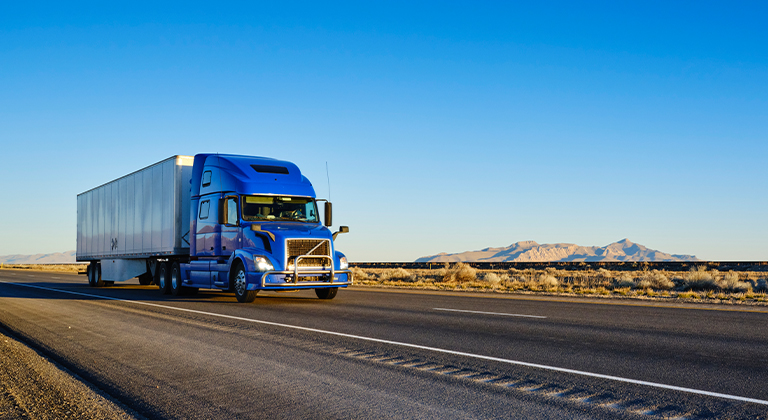Why quick claims reporting matters in the fight against rising claims costs
Your insurance company can help you navigate complex liability laws.
By Nick Saeger – AVP of Products and Pricing for Transportation, Sentry Insurance
Legal system abuse continues to drive up costs in the trucking insurance industry. While our Government & Regulatory Affairs team is working to combat that abuse through reforms designed to level the playing field, there are other ways for you to mitigate rising claims costs.
That starts with promptly reporting all accidents. Let’s talk about why.
A nation of individual states when it comes to negligence laws
Reporting all claims—even ones where you might not be at fault—is imperative for insurance companies. To understand why, it helps to understand how negligence is determined and applied across the country.
The way negligence is determined depends on the state where the suit is filed. Here are the different types of negligence:
Pure contributory: This is when the plaintiff can’t recover damages if they’re found to be even 1% at fault.
Pure comparative: In this definition, the plaintiff’s recovery is reduced by the percentage they’re found to be at fault.
Modified comparative/50% bar: Similar to pure comparative, except if the plaintiff is found to be 50% or more at fault, they can’t recover damages.
Modified comparative/51% bar: Identical to the 50% bar, except the plaintiff must be more than 50% at fault to be prevented from recovering damages.
Since truck drivers travel across the U.S., they may encounter any one of these types of negligence. On top of that, the notion of “joint and several liability” further complicates matters.
The legal term joint and several liability describes how two or more parties share responsibility in a lawsuit. In short, under pure joint and several liability, if any liable party is unable to pay its obligation, the obligation of the other party/parties is increased by that amount.
As with negligence laws, application varies widely from state to state.
How joint and several liability could apply to truck-involved accidents
In vehicle accidents, joint and several liability can come into play even if only two vehicles are involved. Let’s take a look at an extreme example:*
ABC Trucking was involved in an accident with a vehicle driven by Derek F. Driver, whose friend, John C. Plaintiff, was a passenger. John is significantly injured. The majority of the fault lies with Derek, who is found to be 99% at fault, while ABC Trucking was apportioned 1% at fault.
Unfortunately for ABC Trucking, the plaintiff brought the accident suit to trial in a pure comparative state, applying pure joint and several liability. In addition, Derek maintained only minimum liability limits on his personal insurance policy and had no assets to his name. These liability laws place the remaining obligations on ABC, even though the court found them only 1% at fault.
In this example, ABC Trucking figured they were not at fault and found no reason to report the claim. Had they reported the claim, their insurance company could have gotten involved at the start, helping John and his family navigate the claim.
Even when it appears you’re not at fault, state laws vary so widely that it’s possible to be drawn into obligations like these. At Sentry, we’re here to help in that process.
Reporting claims quickly helps resolve claims faster
As a trucking insurance company, our goal is to get you back on the road and to make sure all impacted parties are fairly—and fully—made whole. And we want to do that as quickly as possible. Reporting all claims as soon as it’s safe to do so helps everyone.
A report from Yahoo! indicates that Americans see a link between attorney involvement in a claim proceeding and resulting delays in the process and higher claim costs. Oftentimes, accident victims hire attorneys because they’re intimidated by the process or disheartened because they haven’t been contacted quickly enough.
In those cases, timely claim reporting can help alleviate those concerns. As the insurance provider, we can reach out to the impacted parties, walk them through the process, and help them understand that we’re here to help, too.
Plaintiff attorneys use billboards and commercials to portray truck drivers and insurance companies as adversaries to the common driver. We know that’s not the case. Quick claim reporting leading to prompt contact can help produce better outcomes for everyone involved.
*While these descriptions aren’t based on a specific individual or entity, the details reflect characteristic facts from multiple actual claims.
The information contained in this document is of a general nature and is not intended to address the circumstances of any particular individual. IT IS DISTRIBUTED “AS-IS,” WITHOUT ANY WARRANTIES. NO MEMBER OF SENTRY INSURANCE GROUP WILL BE LIABLE TO ANY PERSON OR ENTITY WITH RESPECT TO ANY LOSSES OR DAMAGES CAUSED, OR ALLEGED TO HAVE BEEN CAUSED, DIRECTLY OR INDIRECTLY BY THIS DOCUMENT, REGARDLESS OF WHETHER SUCH CLAIM IS BASED ON CONTRACT, WARRANTY, TORT (INCLUDING NEGLIGENCE AND FOR PROPERTY DAMAGE AND DEATH) OR OTHER GROUNDS.
Property and casualty coverages are underwritten, and safety services are provided, by a member of the Sentry Insurance Group, Stevens Point, WI. For a complete listing of companies, visit sentry.com. Policies, coverages, benefits, and discounts are not available in all states. See policy for complete coverage details.
Our shared commitment to supporting the trucking industry
Sentry and the American Trucking Associations are working together to promote the trucking industry’s growth and resilience.

About Nick
Nick Saeger is the AVP of Products and Pricing for Transportation at Sentry Insurance.
Related resources
Specialized trucking resources
We bring industry experience, providing tailored insurance solutions, comprehensive safety programs, and retirement planning specifically for the trucking sector.
A 101 guide to essential employee coverage
Help safeguard your company by protecting yourself and your employees with these three coverage options.
Other ATA articles
Crash management for drivers
This guide outlines essential crash response steps for truck drivers and fleet owners, focusing on driver safety, minimizing downtime, and reducing liability. Knowing what to do if an accident occurs can help you reduce losses and maintain your reputation.
Your role in reducing distracted driving
Cellphone use is a leading cause of distracted driving. As a fleet owner, you can help drivers put their phones down through education, enforcement—and limiting your contact with them on the road.
Use data to help hire qualified drivers
Drivers are the lifeline of your trucking operations—how they perform impacts the success of your business. Hiring good drivers takes time, research, and planning, but you’re not alone. Use these available resources and data to help you select safety-conscious drivers.




